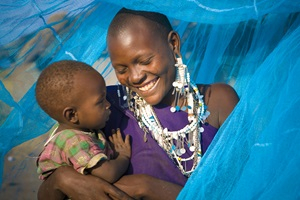Dear Partners,
On behalf of the RBM Partner Committees and RBM Partnership Secretariat, we would like to invite you to the join our session on 'Multisectoral Action to End Malaria' scheduled to take place on Tuesday, 1 June from 16.00 - 17.00 CET.
This session will focus on launching the 'Multisectoral Action Guide to End Malaria' and a country-focused action guide for the Republic of Zambia designed specifically to better use other sectors in the fight against malaria. All relevant documents and the agenda pertaining to this meeting will be added to this page next week.
In order to register for the meeting, kindly fill out this form. After registering, you will receive a confirmation email containing information about joining the meeting.
More information regarding this meeting can be found below:
-
What do we mean by ‘Multisectoral Action Against Malaria’? Interventions initiated and carried out by sectors other than the health sector that can work in tandem with and enhance the impact of health sector investments, expand the benefits of malaria investments to other sectors, reduce the strain on health systems and economies in malaria-endemic areas, contribute to the sustainability and resilience of health sector efforts and, ultimately, help drive progress towards the control and elimination of malaria.
-
How do actions outside the health sector get in the way of progress? In many countries, actions being taken outside of the health sector are unwittingly working against the goals of malaria elimination by creating environmental or social changes that increase malaria risk. For example, newly developed rice plantations may harbour malaria mosquitoes even as they increase food production and economic growth. New construction, mines and roads leave open pits that fill with rain and subsequently with malaria mosquito larvae placing both workers and surrounding communities at increased malaria risk. Hydroelectric dams can create conditions that increase malaria transmission among people living nearby
-
How can we work together to end Malaria? Consequently, preventing and controlling malaria is not a matter for the health sector alone; other sectors can enhance health sector efforts through measures that address the social and environmental determinants of malaria that are part of the policies, plans and practices within their own sectoral mandate. Many sectors outside of health have the potential to make important contributions to malaria prevention and control – from agricultural and extractive industries, to less obvious sectors like tourism – while also mitigating or eliminating the harmful impacts of malaria that impede progress towards their own sectoral goals.
We look forward to your participation in this important discussion.
With best wishes,
RBM Partnership Secretariat
